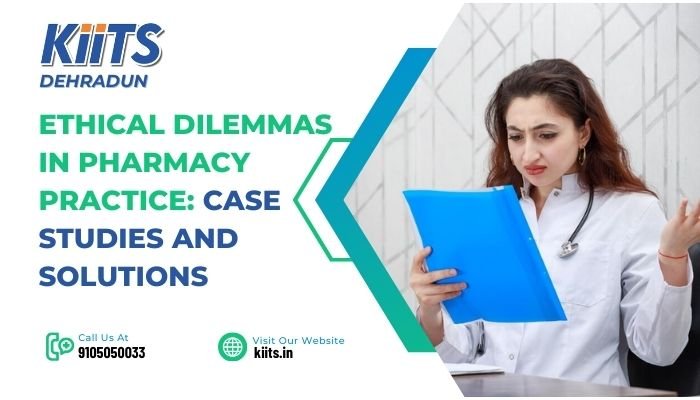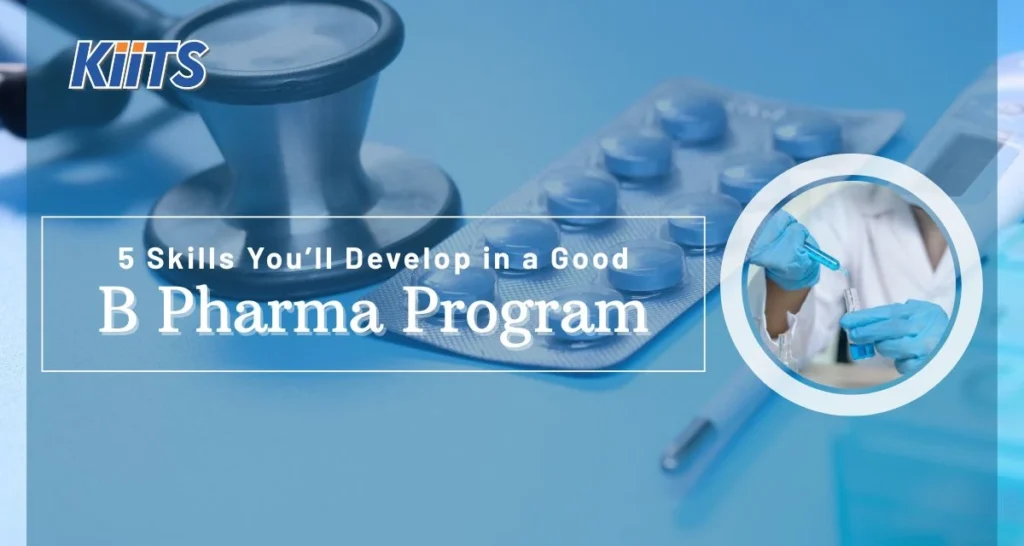An important component of the healthcare system, pharmacy practice frequently entails resolving difficult moral conundrums. Pharmacists must strike a balance between their ethical and professional obligations in order to protect patients’ health and safety and to uphold the law and professional standards. Through case studies, this article examines frequent ethical problems in pharmacy practice and offers strategies for resolving these difficult circumstances.
Recognising Ethical Conundrums in Pharmacy Practice
In pharmacy practice, ethical quandaries occur when competing interests, values, or ideals collide. Autonomy of the patient, kindness, goodness, and justice may all be at variance in these situations. Pharmacists have to balance the demands and concerns of patients, healthcare professionals, and society at large with ethical principles while making choices.

First Case Study: Prescription Mistakes
Scenario: A pharmacist finds a sizable dose mistake in a prescription drug that might endanger the patient.
Predicament: The pharmacist has to choose between compromising patient safety by dispensing the drug as directed and endangering professional relationships by admitting fault and notifying the patient and prescribing physician.
Solution: The chemist should act in accordance with the non-maleficence principle, which is to cause no harm. The pharmacist ought to speak with the prescribing doctor to address the mistake and suggest a fix. To preserve trust, open communication with the patient is also essential. The pharmacist can address the problem in an ethical and professional manner by putting patient safety first and keeping lines of communication open.

Case Study 2: Privacy vs. Public Protection
Scenario: A patient suffering from a communicable illness requests medication, but she is adamant about keeping her identity a secret out of concern for prejudice and stigma.
Predicament: How to strike a balance between the patient’s right to privacy and the possible harm to the public’s health if the illness is not properly disclosed and treated?
Solution: The pharmacist should report infectious disorders in accordance with the law while keeping patient privacy as high as possible. This could include explaining to the patient the significance of public health initiatives and legislation requiring reporting. In addition, a pharmacist can offer advice on controlling the illness and stopping its progression. A pharmacist can defend patient rights and the general public’s health by informing the patient and following by the law.

Case Study 3: Medication Access
Scenario: A patient with low income is unable to pay for a prescription drug that is necessary for treating a chronic illness.
Predicament: The pharmacist is faced with the difficult task of making sure the patient gets the prescription they need while taking their financial situation and other options into account.
Solution: The pharmacist should be guided by the fairness principle, which calls for an equitable distribution of resources. The pharmacist can look into solutions like identical substitutes, prescription assistance programmes, or talking to the prescribing physician about therapeutic substitutes that are more affordable. The pharmacy technician may also suggest to the patient other nearby medical facilities or non-profit organisations that cover the cost of prescription drugs.
Case Study 3: Medication Access
Scenario: A patient with low income is unable to pay for a prescription drug that is necessary for treating a chronic illness.
Predicament: The pharmacist is faced with the difficult task of making sure the patient gets the prescription they need while taking their financial situation and other options into account.
Solution: The pharmacist should be guided by the fairness principle, which calls for an equitable distribution of resources. The pharmacist can look into solutions like identical substitutes, prescription assistance programmes, or talking to the prescribing physician about therapeutic substitutes that are more affordable. The pharmacy technician may also suggest to the patient other nearby medical facilities or non-profit organisations that cover the cost of prescription drugs. The pharmacist guarantees the patient obtains the required care without sacrificing moral principles by looking for alternate options.

Case Study 4: Refusal to Dispense Medication
Scenario: A pharmacist is asked to dispense a medication for a use that conflicts with their personal or religious beliefs, such as emergency contraception.
Predicament: The pharmacist must decide whether to refuse dispensing the medication based on personal beliefs, potentially compromising patient access to necessary treatment, or to fulfil the prescription despite ethical conflicts.
Solution: The principle of patient autonomy and access to care should be prioritized. If a pharmacist has conscientious objections, they should have a system in place to refer the patient to another pharmacist or pharmacy without delay. This ensures the patient’s right to timely access to medication is respected. The pharmacist should communicate respectfully and professionally, explaining the referral process while maintaining the patient’ sacrificing moral principles by looking for alternate options.
Applying Ethical Approaches in Pharmacy Practice
In order to resolve moral conundrums, pharmacist ought to:
Stay Up-to-date: Keep informed of clinical evidence, legal needs, and ethical principles. Pharmacists who receive ongoing education are better able to make decisions.
Enhance Your Communication Skills: Resolving ethical dilemmas requires effective communication with patients, healthcare professionals, and co-workers. Collaboration and trust are fostered by open, honest, and sympathetic communication.
Create Policies: Pharmacies ought to have well-defined guidelines and procedures for resolving frequent moral conundrums. These rules offer a structure for morally sound and consistent decision-making.
Seek Guidance: Pharmacists should consult other professionals, ethics committees, or professional associations for guidance when confronted with intricate ethical quandaries. Well-rounded and moral answers can result from collaborative problem-solving.
Summary
Pharmacy profession inherently involves ethical quandaries. Pharmacists can effectively handle these obstacles by upholding ethical values, remaining informed, and encouraging open communication. In addition to improving patient care, resolving ethical conundrums with honesty and competence upholds the legitimacy of the pharmacy profession.








